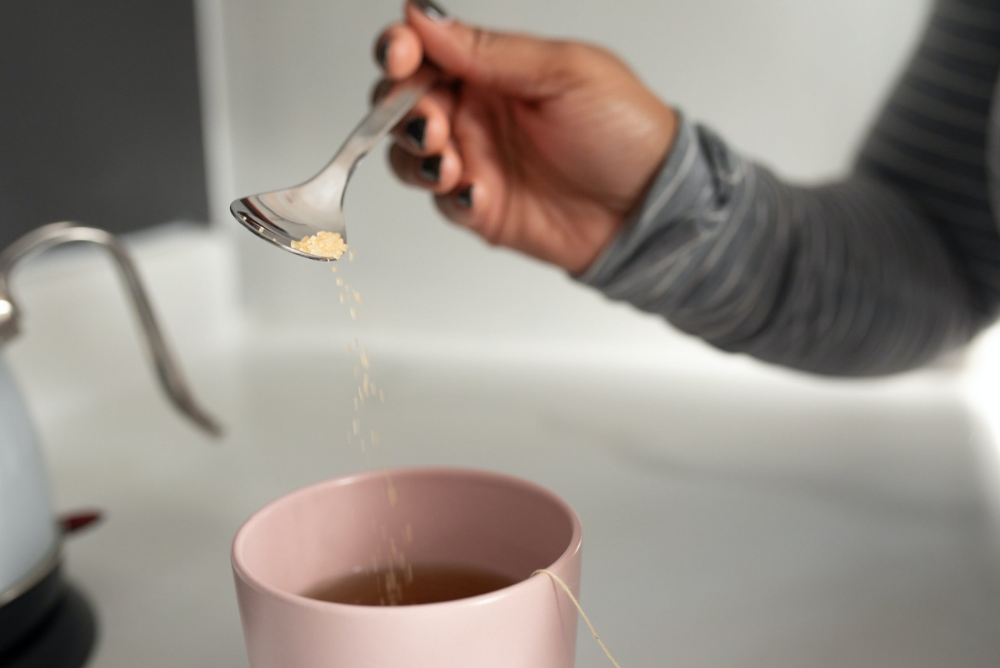
Have you ever had to avoid sugar? It’s hard. It’s especially difficult when you’re craving a steaming hot cup of sweetened tea.
Luckily, there’s a long list of sweeteners you can use instead of sugar. Some are even good for you! Read on for our suggestions on how to satisfy your sweet tooth without the sugar.
Sips by is the #1 rated tea club. Made by tea lovers for tea lovers, our personalized tea discovery box matches you with 4 new premium teas chosen from thousands of top-rated teas based on your unique taste preferences. Learn more about our tea of the month club.
Is Sugar Bad for You?
Sugar isn’t necessarily bad for you. Sugar is an important part of your body’s day-to-day workings. It’s so important that your body will actually turn the carbohydrates you eat into glucose (AKA, natural sugar) to help support your body’s functions.
So, why does sugar get a bad rap? The white or brown table sugar we commonly use is known as refined sugar, and it shows up pretty much everywhere. You can find refined sugar in bread, ketchup, and even soups.
Refined sugar has no nutritional benefits and can actually lead to health problems if consumed in excess. A surplus of refined sugar can be linked to dysregulated metabolism, unstable mental health, and heart issues.
Because refined sugar is everywhere, it’s hard to keep our sugar consumption at a healthy level. Most of the time, we aren’t even aware that we’re eating sugar. Because of this, it’s unfortunately all too easy to see sugar’s negative effects on our bodies.
When we’re trying to avoid refined sugar or just cut back on our sugar intakes, many of us turn to sugar alternatives to get the job done.
What Are Sugar Substitutes?
If you’re trying to avoid sugar, chances are you’ve come across a sugar substitute or two. Sugar substitutes are a wonderful option for people who want to satisfy their sweet tooth without refined sugar.
There are four basic types of sugar alternatives:
Artificial Sweeteners
Sugar Alcohols
Novel Sweeteners
Natural Sweeteners
Artificial sweeteners are often called nonnutritive sweeteners because they don’t contribute much to your body in the way of nutrition. They don’t contain sugar or calories, but they also don’t contain important nutrients that the body needs to function.
Artificial sweeteners are often much sweeter than sugar, so it’s possible to achieve the same sweetness with just a drop of sweetener. Some common artificial sweeteners include aspartame, saccharin, and sucralose.
Sugar alcohols are man-made and are typically used in processed foods. In fact, sugar alcohol can’t be used as a table sweetener, which means you won’t be able to use these in your tea. Common sugar alcohols include xylitol, erythritol, and isomalt.
Novel sweeteners are made from plants, and they typically combine the low-calorie benefits of artificial sweeteners with the less processed format of natural sweeteners. These sweeteners are also the closest to sugar in terms of taste, which makes them a pretty popular sugar substitute. Common novel sweeteners include monk fruit, stevia, and tagatose.
Finally, natural sweeteners are sweet substances that are natural parts of the world. These sweeteners don’t require as much processing and often have many health benefits. Natural sweeteners include honey, maple syrup, agave, and dates.
5 Sugar Alternatives for Tea
Although there are quite a few sugar substitutes out there, not all are wonderful matches for tea. Some sweeteners have an aftertaste or come in formats that don’t dissolve well. To help you find a suitable sweetener, here are five of our favorite ways to sweeten tea without sugar.
Stevia
Stevia comes from the Stevia Rebaudiana plant, which is closely related to sunflowers. This plant grows naturally in South America, where the indigenous people used its leaves as a sweetener for hundreds of years.
Interestingly, stevia’s carbon footprint is 62% smaller than cane sugar, and its water footprint is 95% smaller. If you’re sustainability-conscious, stevia may be the sweetener for you.
Stevia has zero calories and is 200 times sweeter than sugar, so less is more with this novel sweetener. However, stevia also has a bit of an aftertaste that some describe as metallic or bitter.
If you’d like to try stevia in your tea, you may want to play around with different tea flavors and stevia concentrations to find what works best for you.
Here are a few of our favorite teas pre-blended with stevia!
-
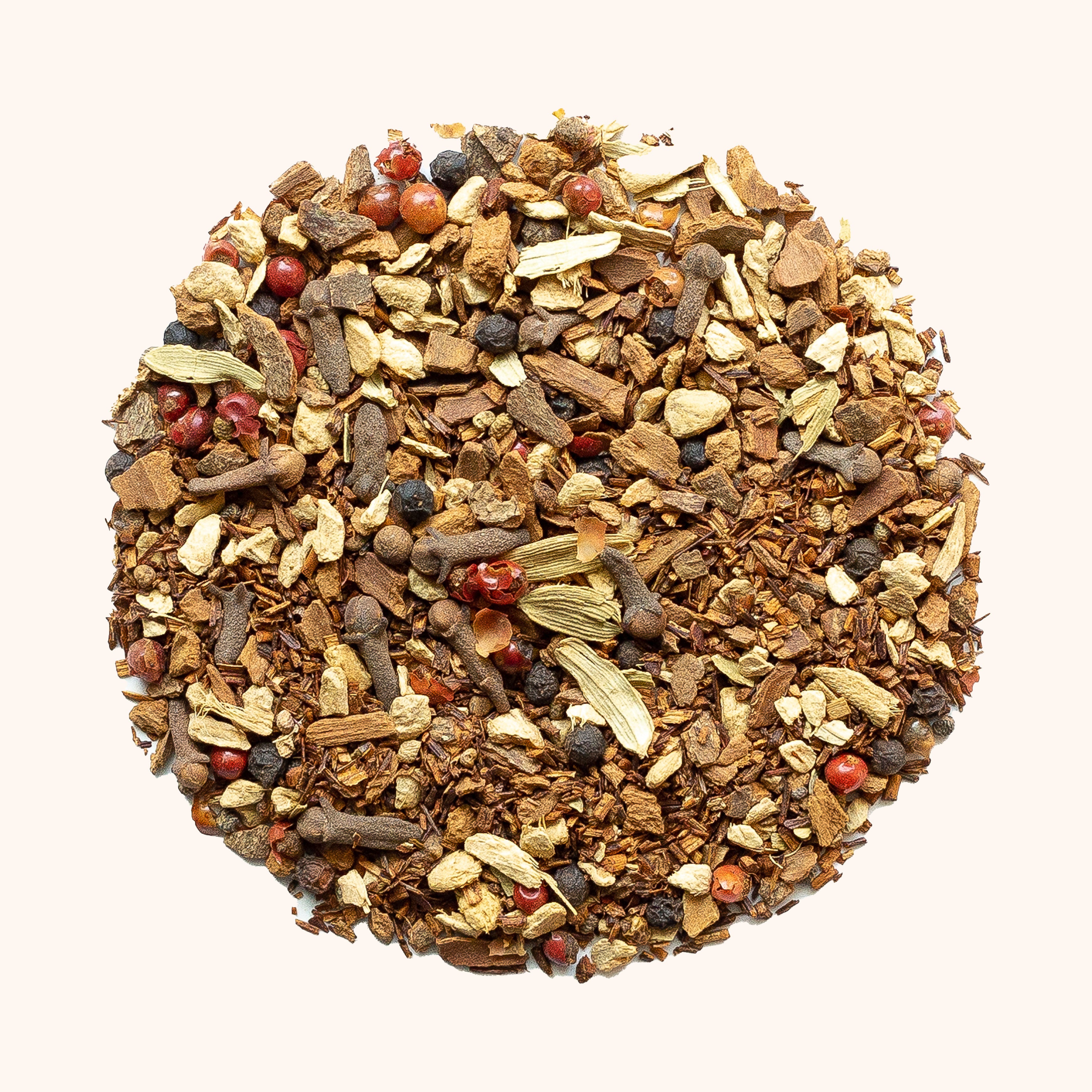 Sold out
Sold out -
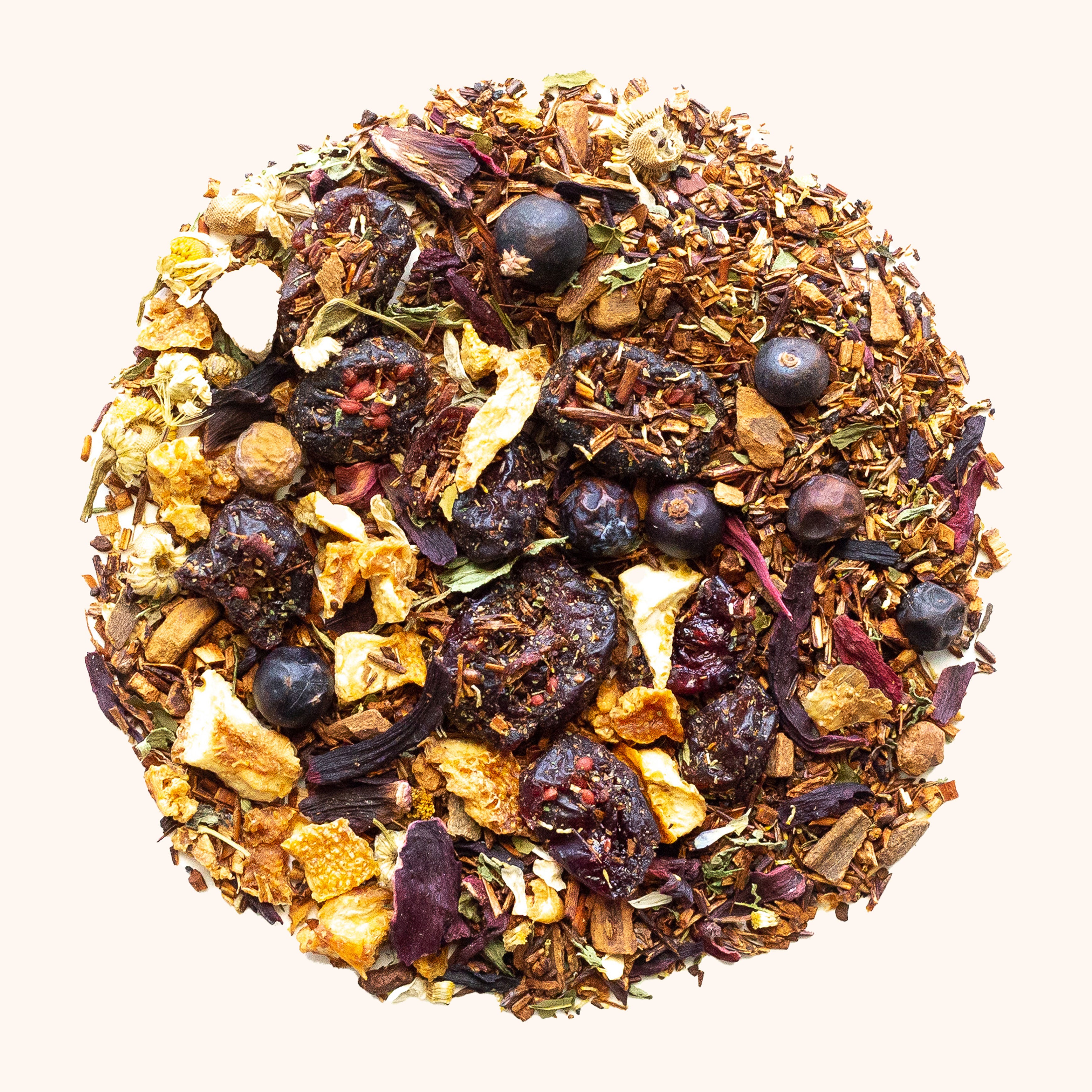 Sold out
Sold out
Monk Fruit
Monk fruit sweetener comes from the monk fruit plant, which is native to southern China. Also known as luohan guo fruit extract, monk fruit sweetener is made by extracting the sweet flavor from monk fruit juice.
Monk fruit has been used for hundreds of years in Asian cuisines, and it was first cultivated over 800 years ago by Buddhist Monks in the southern regions of China.
Research shows that monk fruit may contain antioxidants to help combat free radical damage within your body. It’s also an alternative to sugar that’s over 100 times sweeter.
Monk fruit comes in both granulated and liquid forms, which are both effective at sweetening tea. It is remarkably close in taste to sugar, which makes it a lovely alternative for anyone who wants the taste of refined sugar without actually consuming refined sugar.
You can add monk fruit sweetener to tea or brew a tea that already includes monk fruit in its formula. We recommend Steep Echo Ascent for anyone beginning their monk fruit journey.
This tea is a vanilla and cinnamon-spiced olive leaf tea that uses monk fruit as a natural sweetener. It’s a delicious drink for a cozy night in reading a novel or watching a movie.
Honey
Honey is a sweet substance that is famously made by bees, which means this sweetener is not vegan-friendly. If you’re committed to a vegan lifestyle, you may want to try the other sweeteners on this list.
Honey can come raw (which means it is taken directly from the hive) or pasteurized. Pasteurization is a process that increases honey’s shelf life and removes imperfections, but it can also involve adding sweetness with corn syrup or other forms of refined sugar.
To avoid accidentally eating refined sugar, we recommend using raw honey in your tea. Raw honey also contains more antioxidants, which help your body stay in tip-top shape.
Honey can have many different flavors, depending on what flowers the bees used to make it. Popular kinds of honey include clover honey, acacia honey, and buckwheat honey.
Some kinds of honey are even infused with added flavor, such as Naturacentric’s Vanilla Cinnamon Infused Honey. We absolutely love this honey mixed into a hot cuppa black tea on a rainy day.
A spoonful of honey in your favorite cup of tea is a classic and sweet combo. Try different flavors of honey in your tea for a fun twist!
-
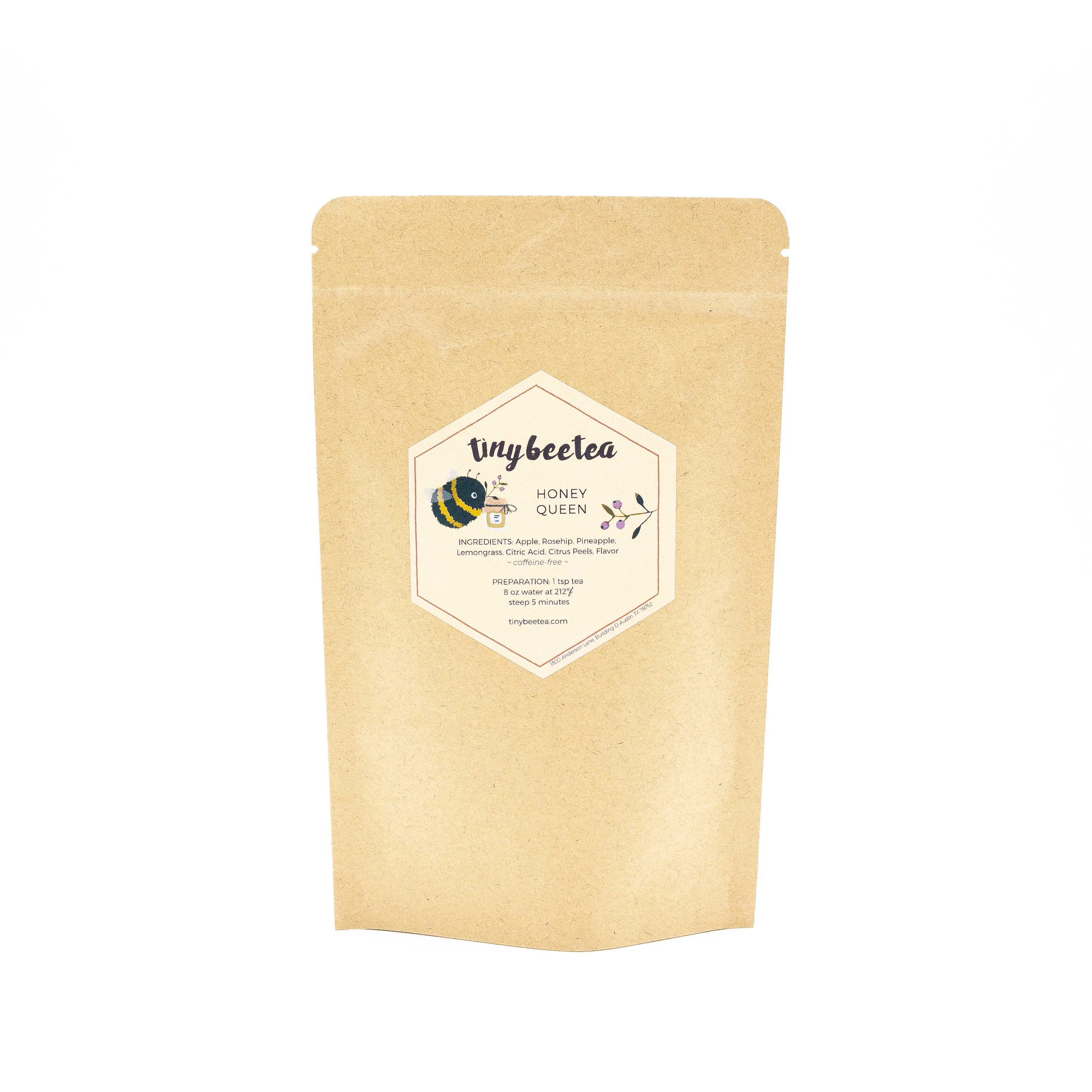 Sold out
Sold out -
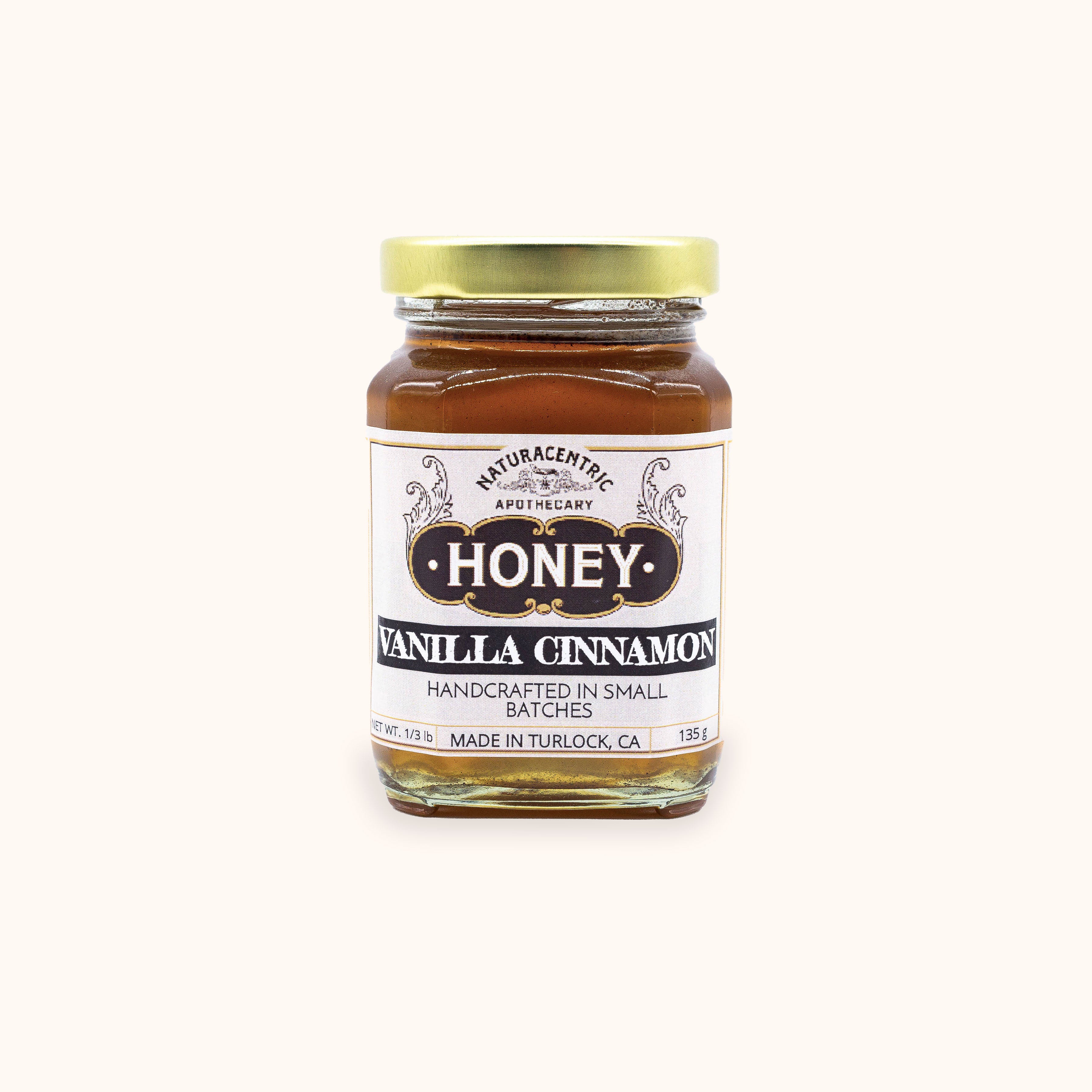 Sold out
Sold out -
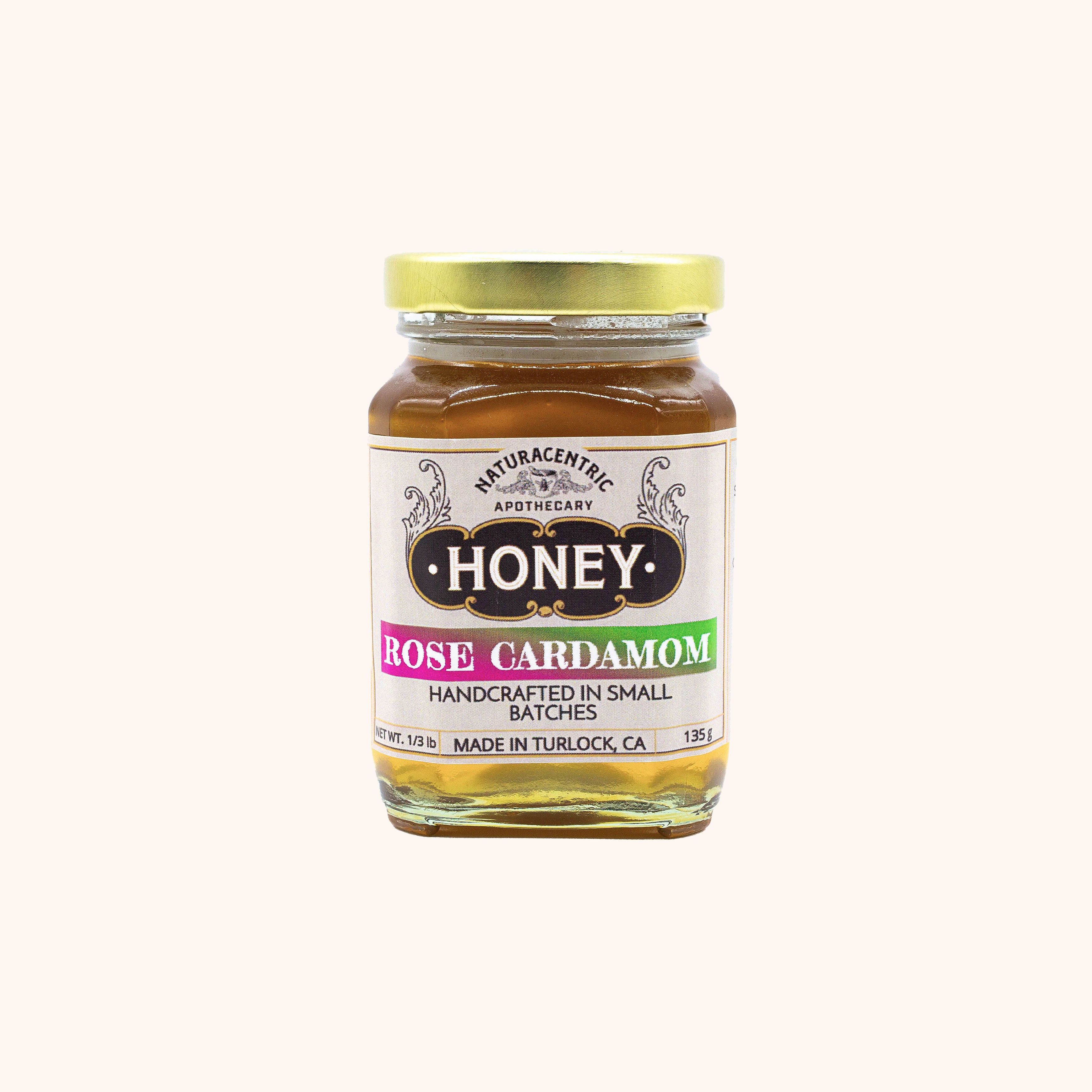 Sold out
Sold out
Maple Syrup
We adore a yummy stack of pancakes with maple syrup, but did you know that you can also use maple syrup to replace sugar in your tea? In fact, this is one of our favorite alternative sweeteners because it’s vegan-friendly.
Maple syrup is made from boiled tree sap, which makes it 100% natural. Maple syrup also contains lots of antioxidants and is much sweeter than sugar.
Be careful when choosing your maple syrup because many lower-quality syrups are spiked with refined sugar or corn syrup, which is what we’re trying to avoid today. Look for pure maple syrup, and check the label to make sure there’s no added sugar.
One of our recent obsessions is Umami Tea Maple Snow Cream, which is black tea flavored with maple syrup, cinnamon, popcorn, safflower, and cornflower. This tea is a deliciously syrupy way to spend early mornings on the porch.
-
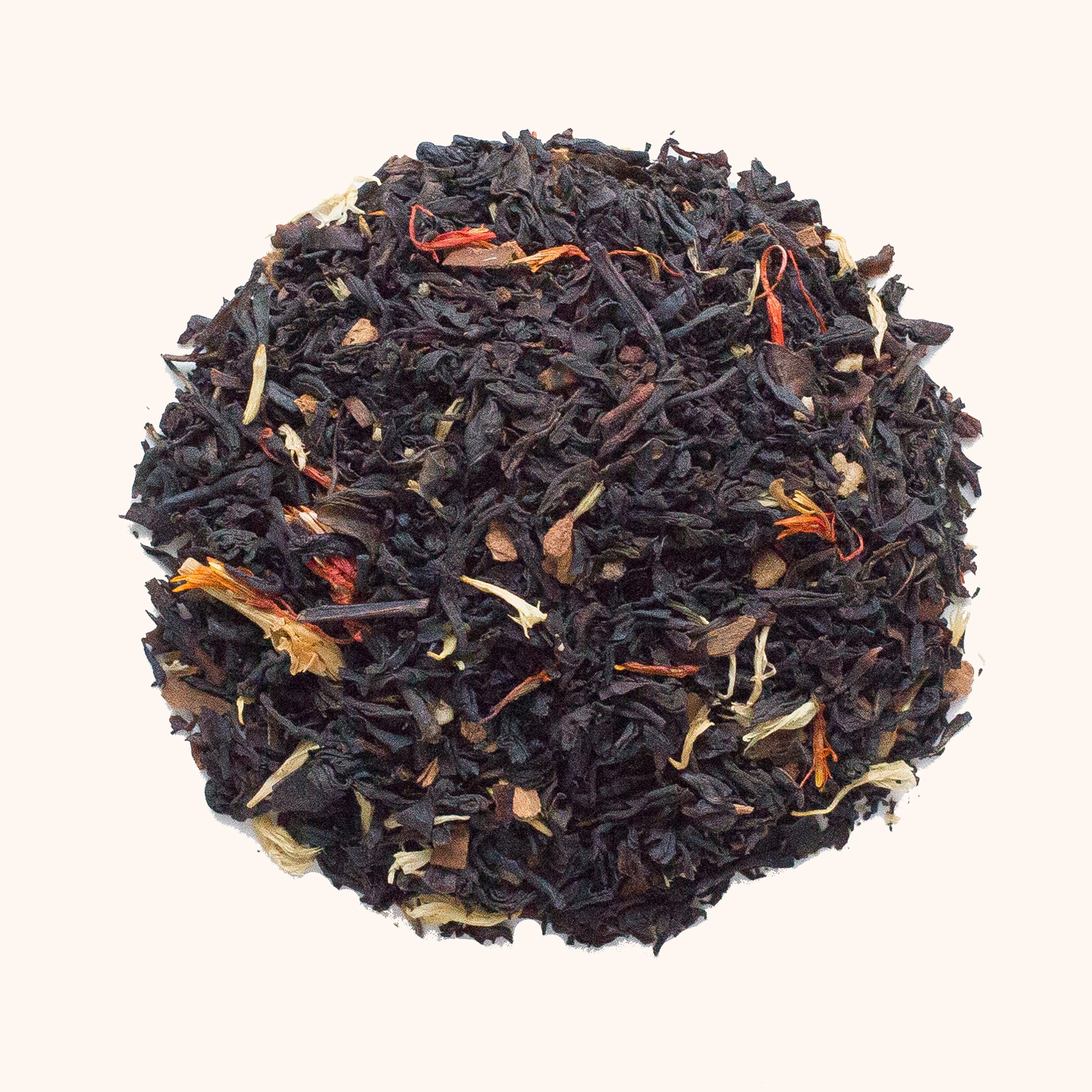 Sold out
Sold out -
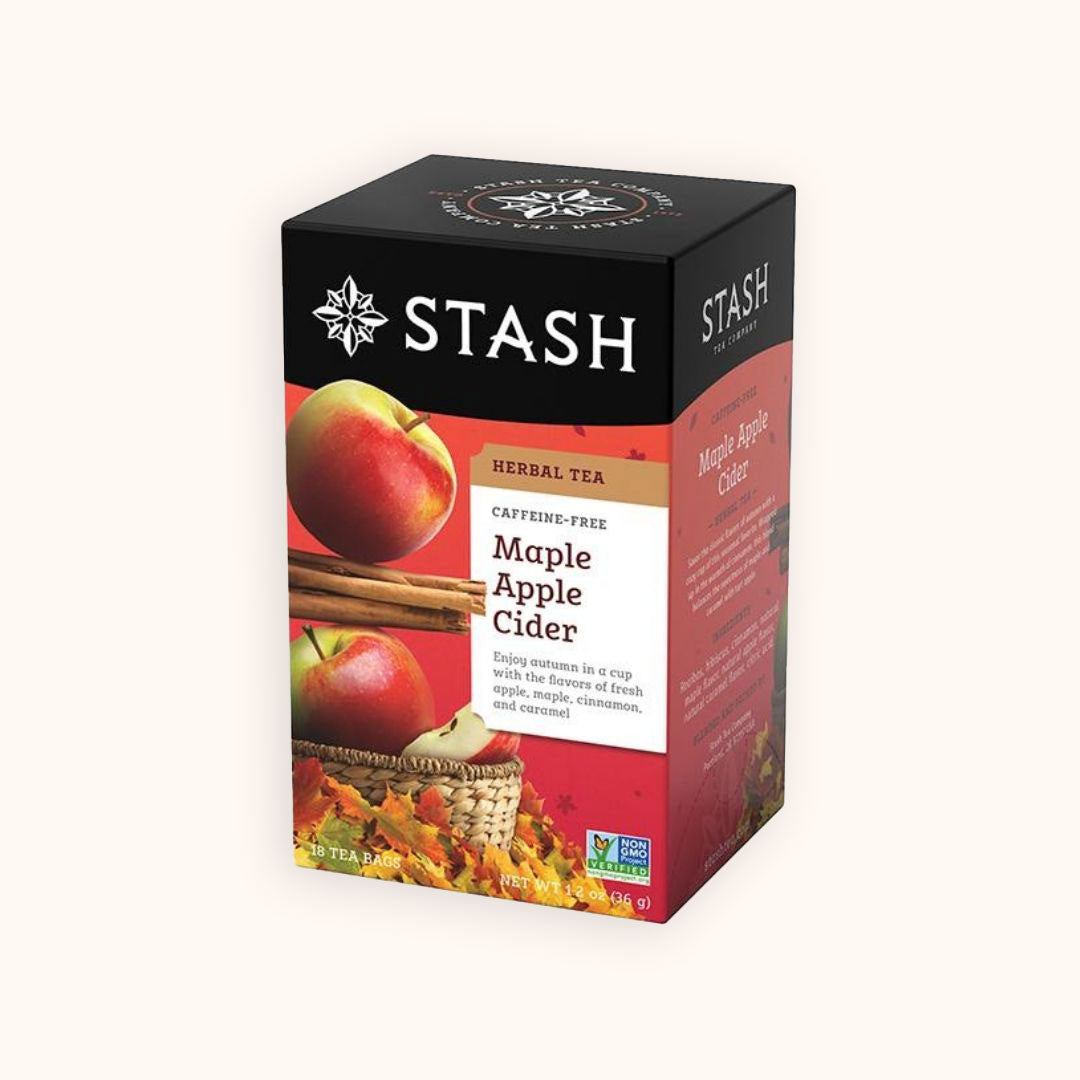 Sold out
Sold out -
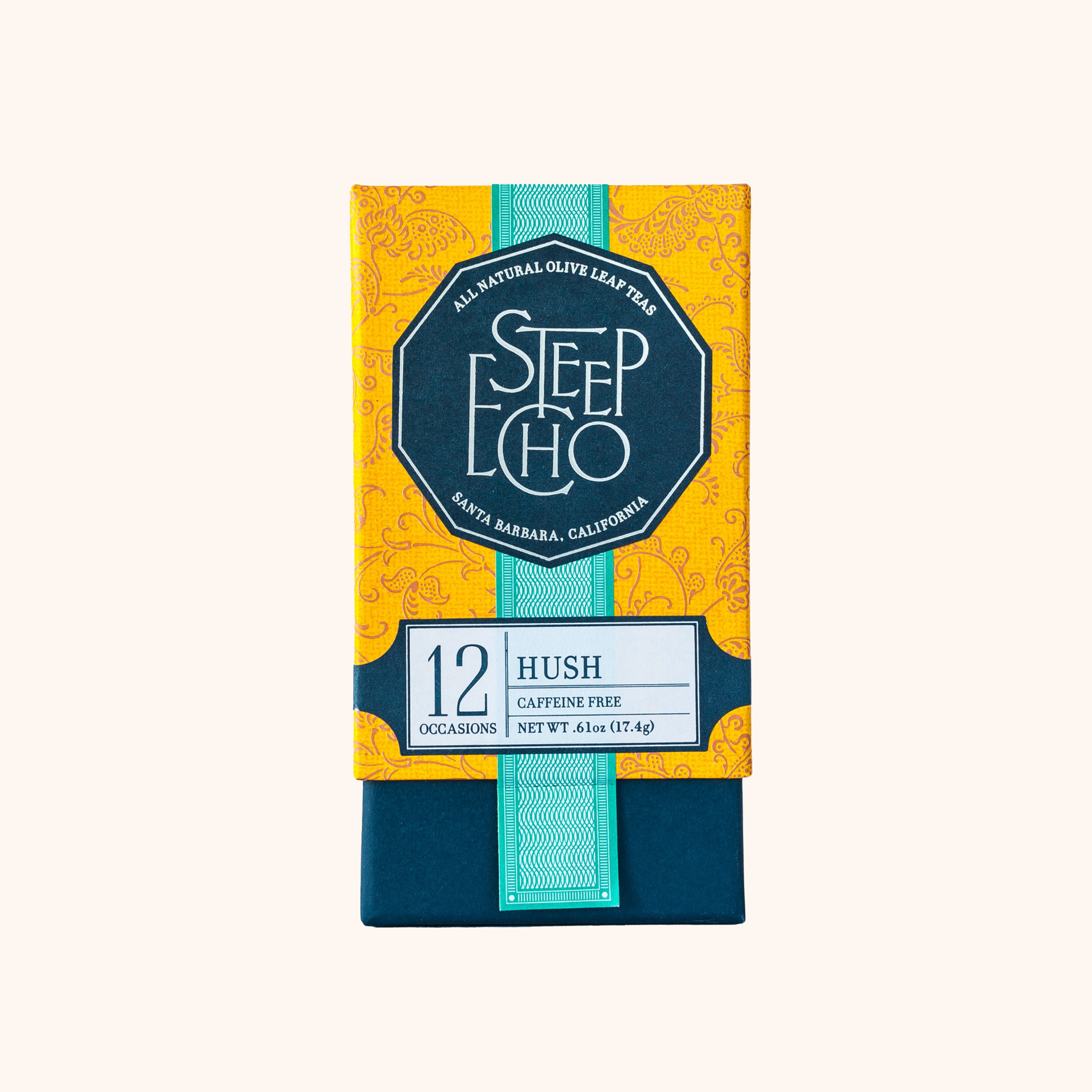 Sold out
Sold out
Dates
Dates are naturally sweet fruits that grow off of date palm trees. Although there are a few varieties of dates, the Medjool date is most commonly used as an alternative sweetener.
Medjool dates are native to the Middle East and North Africa, where they have been cultivated for thousands of years. These power-packed fruits are low calorie and high in nutrients like vitamin B, potassium, and copper. They also contain high levels of carbohydrates, fiber, magnesium, and manganese.
Date sweeteners come in granulated and syrup forms, both of which can be used to sweeten tea. However, you may want to try making your own date sweetener at home. Date syrup is surprisingly easy to make, easy to store, and incredibly versatile.
You can also find dates in tea formulas like Teeccino Gingerbread Roasted Herbal Tea. This blend includes ginger, date, and chicory for a surprisingly convincing gingerbread flavor.
The Takeaway
If you want to cut sugar, you may want to invest in an alternative sweetener. The hardest part about removing sugar from your diet is giving up sweets, but you don’t have to with a yummy natural sweetener.
Our recommendations for natural sugar alternatives include stevia, monk fruit, honey, maple syrup, and dates. However, other natural sugars like coconut sugar and agave also taste delicious in tea. Ultimately, the sweetener you choose depends on your lifestyle, dietary restrictions, and your taste.
Interested in trying these teas and others? Subscribers receive 4 teas chosen just for them in every box. Learn more about our tea subscription box or explore the loose leaf tea shop.
About Sips by: We’re a female-founded and led startup that makes discovering tea fun, personalized, and affordable. The Sips by Box is the only multi-brand, personalized tea subscription box. Each month, we match tea drinkers across the U.S. with delicious teas from over 150 global tea brands that we’re sure they’ll love. Based out of Austin, Texas, we are adept at savoring a hot mug even when it’s seasonally inappropriate.
* These statements have not been evaluated by the Food and Drug Administration. These products are not intended to diagnose, treat, cure, or prevent any disease.
Sources:
The Sweet Danger of Sugar | Harvard Health
Facts About Sugar and Sugar Substitutes | Johns Hopkins Medicine
Stevia, Nature's Zero-Calorie Sustainable Sweetener | PubMed Central
Is Monk Fruit a Healthy Sweetener? | Cleveland Clinic
The Benefits of Honey + How to Incorporate It Into Your Diet | Cleveland Clinic










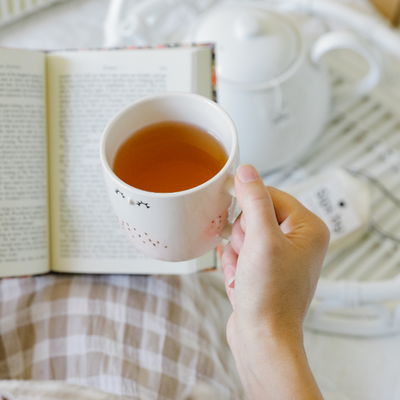
1 Comment
Read your bit on sugar substitutes. Reminding you that for folks with diabetics honey is liquid sugar, and maple syrup is next in line. Dates are quite sweet. If you choose to use please use in moderation! They each have health benefits but moderation is key.